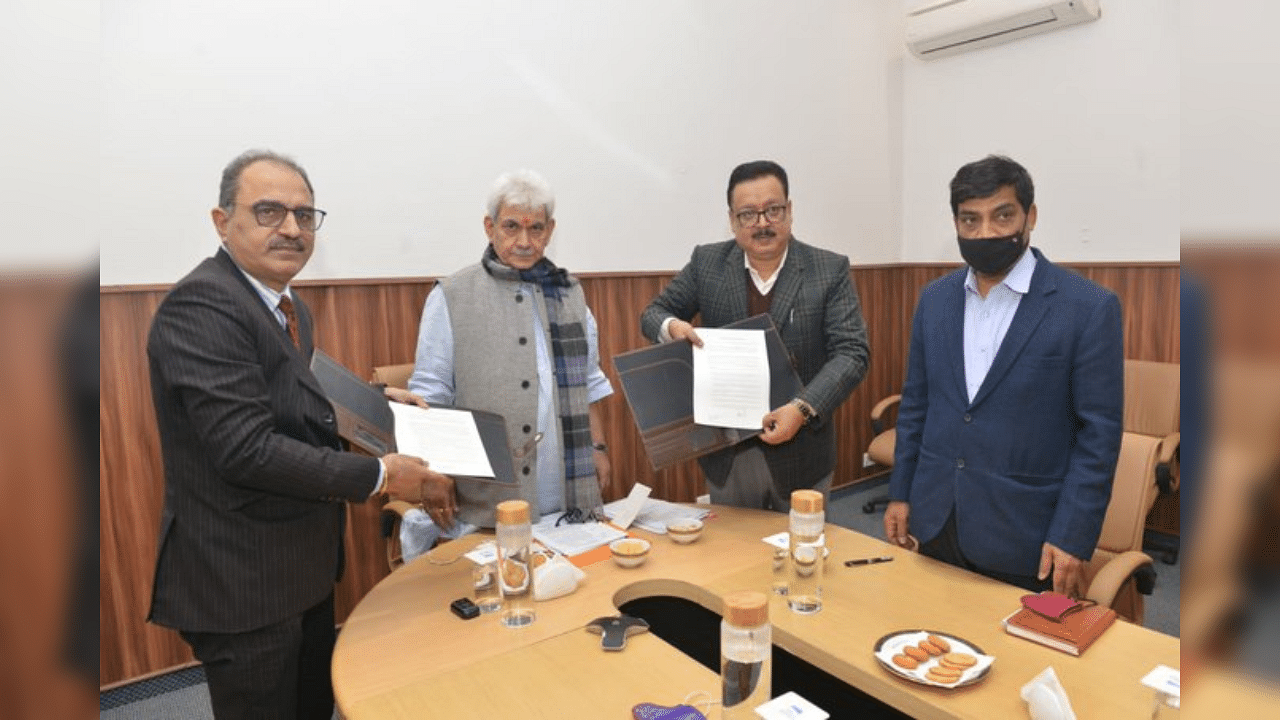
To promote the state's horticulture produce and take it to the global market, the Jammu and Kashmir government on Friday signed a memorandum of understanding (MoU) with the National Agricultural Cooperative Marketing Federation of India Ltd (NAFED).
The MoU with the NAFED, an apex organization of marketing cooperatives for agricultural produce in the country, is seen as a game-changer for the horticulture sector in the union territory, officials said.
High-density plantation of apple, walnut, cherry and flowers has the potential to increase the income of farmers by 3 to 4 times, an official statement said. After signing the MoU, the NAFED will cover 5,500 hectares at a cost of Rs 1,700 crore in the next five years with a major focus on apple, walnut, cherry, pear and other significant horticulture produce.
The NAFED will also set up 20 Farmer-Producer Organizations, one in each district, in the next three months, the statement said. It will set up three cold storage clusters, one each in north and south Kashmir and one in Kathua, Jammu at a cost of Rs.500 crore, besides ensuring Geographical Indications tags (GI Tags) for all premium/niche horticulture produce, branding and marketing of fruit crops.
According to government figures, Kashmir exports around 20 lakh metric tons of apples every year, and the horticulture industry is pegged at around Rs 8,000 to 9,000 crore, including the employment it generates. Kashmir produces 75% of the total apple production in the country.
The MoU was signed between Navin Kumar Choudhary, Principal Secretary Agriculture and Horticulture Department, J&K and Sanjeev Kumar Chadha, Managing Director, NAFED.
Speaking on the occasion, J&K Lt Governor Manoj Sinha observed that the government was tirelessly working on increasing productivity through the intervention of technology, ensuring best price and market support, mitigation of risks, and diversification through allied activities.
The fruit industry in Kashmir suffered heavy losses due to the prolonged security lockdown after the abrogation of Article 370 on 5 August 2019, unseasonal snowfall in November 2019, frequent closure of the Srinagar-Jammu national highway and Covid-19 lockdown last year.